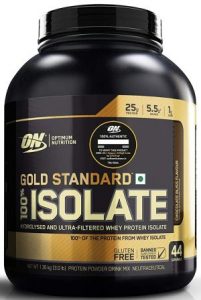Did you know, the annual turnover of whey protein for the year 2020 was approximately 9.19 billion us dollars. And also, it is estimated that till the year 2028, the annual turnover will reach up to 18.19 billion us dollars in the year 2028.
As a gym person myself, I used to get a lot of best whey protein recommendations. People who want to gain lean muscle mass or who even want to build a muscular body use protein powder in their diet.
Whey could enable you to get the most out of the work you’ve done at the gym, depending on your aims. It offers numerous advantages, mainly when administered promptly and in quantity.
Before knowing if whey protein is good for you or not, let us know what whey protein is. We will also see how you can include whey protein in your diet.
What Is Whey Protein?
Whey protein is isolated from whey, the watery portion of the milk, which gets separated from the curd when making cheese. That watery portion is commonly used as a protein supplement.
This native by-product of cheesemaking makes up around 20% of the protein in the milk obtained from cows, making it a relatively safe protein supplement. Whey Protein also has a low lactose level, making it easy to process and secure, including for people with mild gluten sensitivity.
It is most commonly used by athletes, gym bunnies, gymnasts, etc. It helps in increasing strength and performance.
There are three types of whey protein. The major difference between them is the method they are processed.
Whey Protein Concentrate
This type has approximately 70 to 80% protein along with lactose, fats and minerals from the milk.
After the whey has been neutralized and continually filtered, the whey concentrate is what has been left. Because it undergoes minor processing to obtain the final product, concentrate often includes the least protein levels relative to isolate and hydrolysate.
Whey Protein Isolate

This contains roughly 90% of isolated protein. It has less amount of lactose, fats and beneficial minerals as well.
Although the body’s absorption rate is almost the same with concentrate and isolate, isolate may be the best alternative if you need the most protein in every serving.
Whey Protein Hydrolysate

This form of whey protein is easier to digest and absorb by the body. Whey hydrolysate has now been subdivided into further smaller peptides for faster absorption of nutrients. These peptides, or protein groups, have been digested beforehand with the help of enzymes or have been broken down with warmth or acidity.
24 g of protein is present in 110 calories of Hydrolysed Whey Protein. Although this version of whey protein has a higher rate of biosynthesis, the remaining variants are still very efficient at synthesising proteins and glycogen replenishment uptake (be even at lower rates).
Whey protein is available in various flavors and can also be combined with fruits or blended with water or milk.
Health Benefits Of Whey Protein
Whey protein is the best supplement ever studied and has tons of nutritional and health benefits. Its extensive use is backed up by studies that show it has a high nutritional profile and is easy to process and assimilate. Whey protein is amongst the most recognized dietary supplements owing to its benefits above other kinds of protein and relatively low potential adverse effects.
Excellent Source Of High-Quality Protein

As mentioned earlier, whey protein is isolated from the watery portion of the milk while making cheese. It is a complete protein supplement containing essential amino acids, which help in building new muscle fibres.
It is easily digestible and has a high absorbance capacity through our gut wall.
These qualities make a whey protein enriched supplement out there.
Promotes Muscle Growth

Muscle mass in the body tends to decrease with age. It also increases fat deposition, ultimately leading to the onset of many chronic diseases, like cardiovascular diseases, uric acid deposition, etc.
To prevent adverse changes in the body and prevent the onset of the disease, it is advised to do some strength training and an adequate protein intake.
Whey protein is rich in an amino acid named Leucine. This is the most efficient muscle growth promoting amino acid. Hence, whey protein helps in the prevention of age-related muscle loss. It also helps in toning up the body.
Can Lower Blood Pressure

As you may have known, that high blood pressure accounts for more significant risks of heart disease. Many studies have found that consumption of dairy products can have a lowering effect on blood pressure.
Dairy products like milk or curd have a bio peptide called Angiotensin-converting enzyme inhibitor or ACE inhibitor. ACE Inhibitors are also known as antihypertensives. They are primarily vasodilators and helps in relaxing or opening the blood vessels, leading to lowered blood pressure.
Whey protein contains an ACE inhibitor named lactokinin. Various studies support lactokinin in lowering blood pressure.
Whey Protein Is Very Filling
Some food items are more satiating than others; that can be because of the percentage of macronutrients present in them. Macronutrients include protein, fats, and carbohydrates.
Protein is the most filling macronutrient out of the three. Whey protein, being an excellent source of protein, gives the feeling of fullness. This property leads to less consumption of calories.
Helps In Reducing Weight

Whey protein is also associated with weight loss. Since whey protein is quite filling, as mentioned earlier, it can help in weight loss, as you would be consuming fewer calories if you are full.
It also helps in boosting your metabolism, which in turn helps in burning your fats. And it also helps to build lean muscle mass, where your muscle mass in the body would increase without affecting the overall weight.
Helps In Lowering Cholesterol

A study was published in the British Journal of nutrition. Here, a group of overweight people was given whey protein for approximately 12 weeks. They were continuously monitored over this period. Observation: there was a significant reduction in the total cholesterol and LDL level in all the participants over 12 weeks.
Whey Protein Is Convenient
The most apparent advantage is its practical and rapid way to recover depleted protein reserves due to its portability and ability for use on the go. The powder does not have to be kept frozen or chilled and is simple to measure and combine with water, yoghurt, oats, etc. Whey protein can also be used to improve the protein content of baked products and other meals.
How And When To Consume Whey Protein
Whey protein can be consumed with milk or water. You can also use different types of milk like coconut milk, soy milk, skim milk, etc. protein shakes are the most common protein consumption method. That is because it is the simplest of all. Let us see how.
The average protein requirement for a person is approximately 25 to 50 gms. That amount of protein gets covered in one or two scoops of protein powder. All you have to do is, take two scoops of whey protein, add it to water or milk of your choice. Give it a nice mix. There you have it, your protein shake!
You can also have whey protein with oats, smoothies, in the form of low-fat ice cream etc.
Although most people have it in their post-workout meal, you can have it any time you want. Breakfast, post-workout, before going to bed, as a snack, etc. You can also have a whey protein empty stomach as it is easy to digest and absorbed and boosts nutrients levels. It won’t make you feel bloated or overstuffed.
You May Also Like To Read:
Raw Protein Vs Whey Protein | What Is The Difference?
How Does Pea Protein Powder Compare To Whey?
FAQs
What are the side effects of Whey protein?
Whey protein generally does not have any significant side effects. If only taken in excess amounts, it can show symptoms like nausea, headache, stomach pain, and more.
Does whey protein contain high amounts of sugar?
Most of the whey protein does not contain sugar. However, if you go for a more flavorful version of the whey protein, it might have a high amount of sugar. This type of protein powder will result in gaining weight more than helping in losing it.
Hence, it is advisable to look at the sugar content before buying a protein powder.
Should you take whey protein or not?
If you are a person looking for some extra source of protein, you should give whey protein a try. Due to all the fuss about whether it is safe or not, we can say that it has no possible side effects if taken in a considerable amount.
Conclusion
Whey protein is isolated from the watery milk substance obtained in the cheese-making process. The list of health benefits that it serves answers whether you should take it or not.
From helping in building muscle mass to lowering cholesterol, etc., it does it all. From obese people to people who want to increase their muscle mass, it can be consumed by all.
We also answered some of the most common FAQs about whey protein. Hence, now we can safely say that, yes! Whey protein is good for you.


